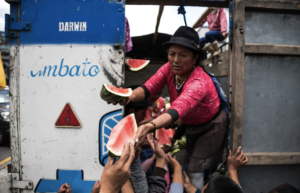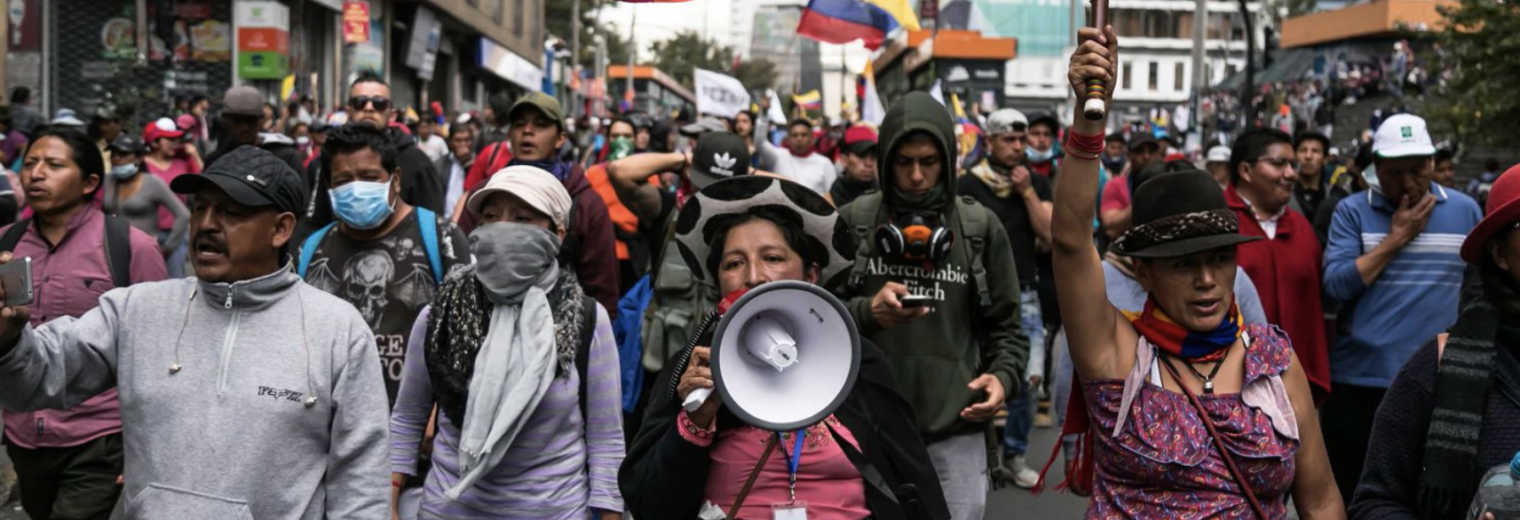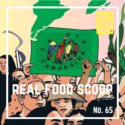by Tanya Kerssen
Indigenous Peoples’ Day has us thinking about all the ways indigenous communities, knowledge(s), cultures, seeds, and foodways are central to building the world we need. This isn’t just about preserving traditions, it’s about recognizing indigenous people as leaders, change-makers, and innovators of food and climate justice movements.
This great article by Nick Estes—which we shared in our latest issue of the Real Food Scoop— argues that the green jobs envisioned in the Green New Deal have been pioneered and are already being modeled by indigenous peoples, whose stewardship of nature is rarely viewed as “productive work”:
Rarely is Indigenous caretaking defined as work. Yet, like unwaged caregiving work, land defense and water protection are undervalued but necessary for the continuation of life on a planet teetering on collapse.

Demonstrators reach out for food donated by supporters in Quito on Oct. 9. (Photo by Jonatan Rosas/Washington Post)
Indigenous people in Ecuador are leading one of the most powerful protests in the world right now against the extractive industries that are wrecking the climate—with the first and most severe impacts felt by indigenous farmers. The protests are led by the indigenous confederation CONAIE, with strong leadership from women.
In many ways, indigenous worldviews are better equipped to understand the climate crisis and organize collective responses to it that are rooted in centuries of sustainable land and water management and adaptation to changing weather patterns. Critical to applying this invaluable knowledge to the current climate emergency is protecting, and restoring, indigenous community control over land and territory—especially considering these territories are home to upwards of 80 percent of the world’s biodiversity.
Modern agroecology—the science, movement, and practice of sustainable agriculture—is based in large part on the many techniques, insights, and principles developed by indigenous peoples around the world.
Alliances across multiple sectors of society are necessary if we are to address the most urgent ecological and humanitarian crises of our time. But in this new global movement we are building— against environmental destruction and (neo-)colonialism, and for relationships that protect and care for the earth and each other—we would do well to center indigenous peoples and leadership.
Check out our four Real Food Reads book picks in celebration of Indigenous People’s Day, and for more reflection, discussion, and action on the climate crisis, see our Climate Toolkit.
Header image: People demonstrate in Quito on Oct. 9. The march is made up of a union of all ethnic groups originating in the Ecuadoran Andes. In the coming days the Amazon communities will also join the rallies. (Jonatan Rosas/Washington Post)




